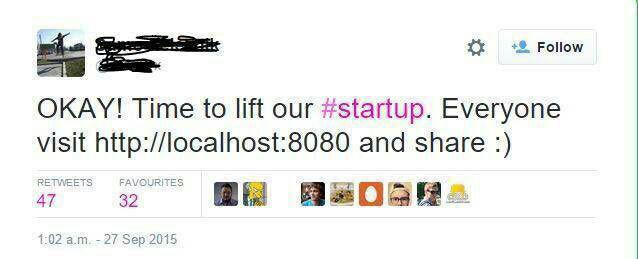Ranter
Join devRant
Do all the things like
++ or -- rants, post your own rants, comment on others' rants and build your customized dev avatar
Sign Up
Pipeless API

From the creators of devRant, Pipeless lets you power real-time personalized recommendations and activity feeds using a simple API
Learn More
Comments
-
I have no advice. I'm not sure how much industry experience applies to a startup. Unless your experience is in startups.
-
what's your daily cost of doing business? how much of your time you're able to bill the client? What's your hourly rate? What's your marketing strategy? Do you have legal support for contracts and liabilities? How do you handle support? Do you know how to do bookkeeping? Do you know the laws required to run a business? What will you do if a client doesn't pay or a vendor doesn't deliver? What's your business plan? Where do you want to be in 3, 5 or 10 years? Do you have enough capital for a year in the bank?
if you honestly can answer all the answers then sure. If not get a part time job which covers your living costs. -
@heyheni thanks alot man. I really appreciate it. I've never thought of some of the things you've mentioned. Fortunately I do have a part time job to cover my expenses. I've never thought of legal aspects of it.
-
@heyheni any help understanding how first three points works?
1- daily cost for business
2- hourly rate
3- and time billing -
@shahidcodes
The daily cost of doing business is the number that you need to make in order to be a viable business.
Sum up all expenses you'll need for doing business for a year. e.g Office rent, furniture, electricity, laptop, printer, software licences, magazine subscriptions, memberships (for example in the camber of commerce). Marketing. Everything! And divde that by 365 (days). That's the minimum you have to make a day.
Your hourly rate consists of the monthly cost of doing busness + your monthly salery + profit margin diveded by 168 hours (=42h work week). equals the amount you have to bill your client. So you see time is your most valuable asset.
Rule of thumb says that you have to be able to bill 60% of your work week and the other 40% is time you have to invest in paperwork, bookkeeping and most importantly acquiring new customers.
If you doing well after a good period of time and your projects get bigger and you're able to bill over 90% of your time. It's time to invest in a part-time employee.
questions? -
@heyheni Thanks alot. Seeing the condition of things I need to make sure if few things.
Related Rants

 Lets all help them share their startup
Lets all help them share their startup When you keep getting +1s on a rant you posted a month ago.
When you keep getting +1s on a rant you posted a month ago. They break your heart too 😭💔
They break your heart too 😭💔
What advice you'd give me if I've no industry work experience and already in process of making my first start up into a business? Got my first paying customer and many more in process
question
entrepeneur
etc
dev
startup